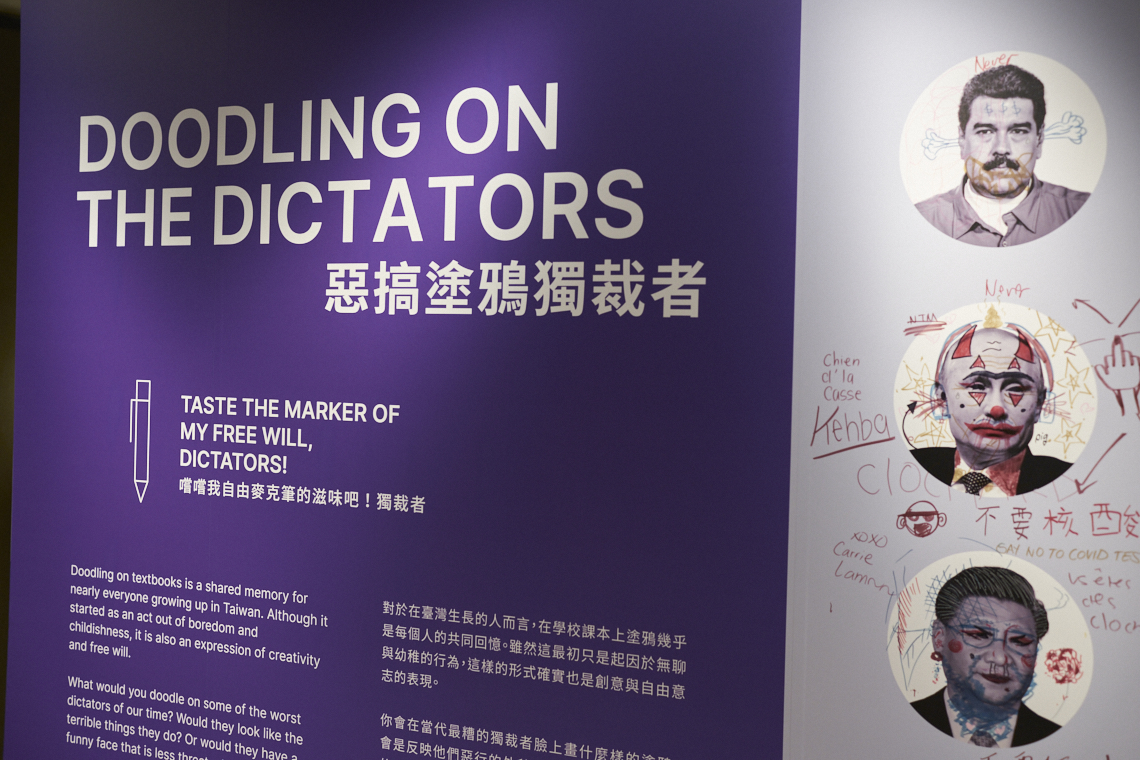Oslo Freedom Forum in Taipei
Anna and I usually meet for lunch once a week, a cute habit that allows for an hour-ish of weekend feeling in the middle of the hustle. On November 3rd, the cherished “date” vibe was a bit spoiled though. Our food was late and we had to rush. The Oslo Freedom Forum was in Taipei.
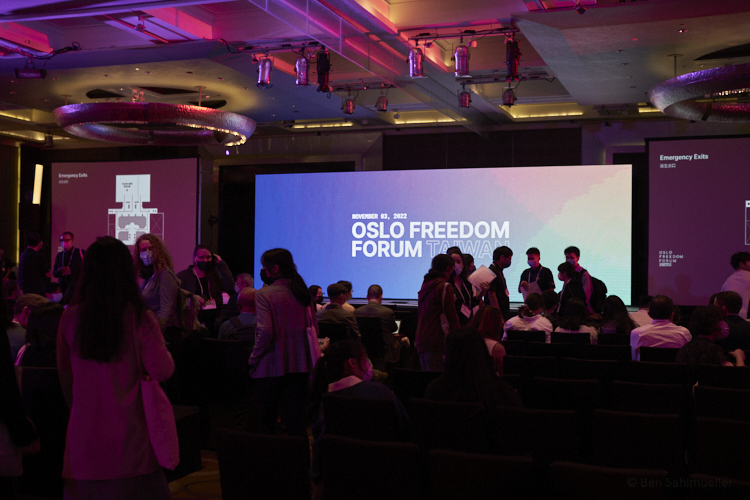
The Oslo Freedom Forum
The “OFF” is an event series produced by the Human Rights Foundation once or twice a year, founded 2009 in Oslo. It is aimed at “activists, technologists, artists, innovators, philanthropists, policy makers, journalists, and students”, and if you think that only “leaders”, “change-makers”, and hashtags are missing in that list, you are not alone.
2022 OFF came to Taipei, to the Grand Hyatt Taipei, to be precise – a hotel that just recently featured in the context of freedom and democracy when Nancy Pelosi crashed one of its suites for a night at the beginning of August. As it is built on an old execution site, local rumor has it is haunted. The facade also seems rather fusty, especially when compared to Taipei 101 opposite the street. I was hence even more astonished by the opulent entrance hall full of marble, mirrors, giant flower compositions, and rich people. Less surprising: just after stepping in, we were greeted by a group of friendly and elegant Taiwanese staff, handing us badges and showing us the way. As always in Taiwan, the service was meticulous.
The conference space itself was as cheeky and playful as professional. A mixed and rather young group of Taiwanese and international “activists, journalists, technologists, etc.” was busy doodling additional ears, noses, and horns on the images of Putin, Xi, and Co, while several local NGOs and independent media organizations presented their work. (An image of both the dictator wall as well as the stand of the project “Flash Drives for Freedom” would even make it into the German news the same day.) The sound, video, and light systems were the last craze, and of course there were dozens of sound and light technicians, videographers, and photographers in their usual black shirts. We were ready to roll!
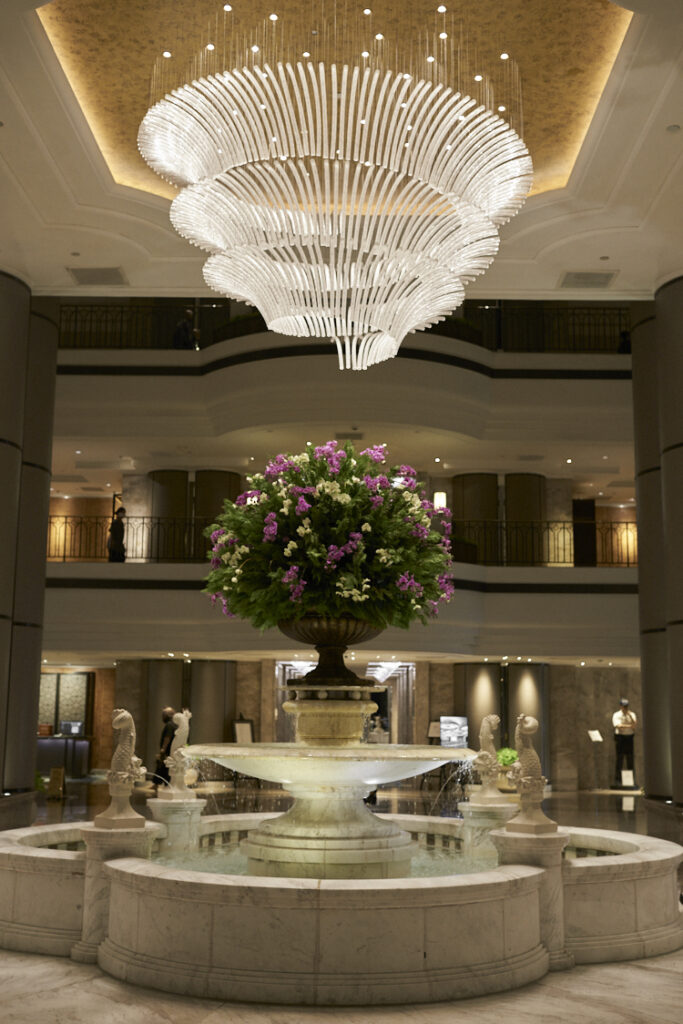
Ideals Worth Spreading
In Taipei, OFF was organized around a big stage on which initiators/leaders/organizers of various civil rights movements from all around the world as well as a few artists would present their cause in short speeches. They were introduced with a cinematic video, their speeches well-prepared, presented charismatically and with a grave, emotional aftertaste. As said, light, visuals, and sound were perfect.
If this all reminds you alarmingly of 2010s’ peak “#inspiration” agora TED, you are not mistaken. OFF is TED for activists, “ideals worth spreading”, if you want. As a big skeptic of TED, I was wary and in full propaganda-defense mode. Activating my spider senses well trained during my consulting time, I was also very very curious what kind of narratives the organizers would weave throughout the event. A good conference is like a good movie, and you need a bunch of interesting characters, a clear storyline, coherent language, and strong images to entertain and enthrall your audience.
One key difference between OFF and TED and its offshoots – which is linked to TED’s major problem – is that TED is about ideas, not actions. Thus, many TED talks are rather shallow incantations of folk wisdom. They usually take one side of a duality, often ignore any nuance or additional complexity in their quest for “clarity”, and pack it in a cheesy story of personal epiphany. TED talks are highly choreographed 20 minute summaries of self-help books, which in extension makes the event basically a three hour paid book advertising show. (Of course, TED deserves a more coherent critique than this. Oliver Schwartz wrote a good one, when you take his provocative hyperboles – “graveyard of ideas”, “middlebrow megachurch infotainment”, “propaganda arm of an ascendant technocracy” – as entertaining bon mots.)
The problem of TED is not the format or quality, though, and – to now end my rant and spoil the tension – the format works really well for activists and thus OFF! That’s probably because OFF is the exact opposite of TED on many levels. TED is about a future that will never come, OFF about a past that was supposed to never happen. At TED, every speaker has a different idea but they all did the same (writing a book). At OFF, everybody has the same idea (dictators suck) but did something different. Suffered something different. (There is probably a Tolstoy joke somewhere here…) I guess, in an age where the best way to success is to claim an age old word your own (“vulnerability!”, “purpose!”, “desire!”, “creativity!”), it is the principled stance of the people on OFF’s stage that I prefer: often members of minority groups who had little but their courage to oppose authoritarian regimes to fight for a bit of (20th century) liberty, instead of celebrities hustling their way into the NYT bestseller charts in order to reap the fruits of our wonderful power-law distributed 21st-century neoliberal (idea) markets.
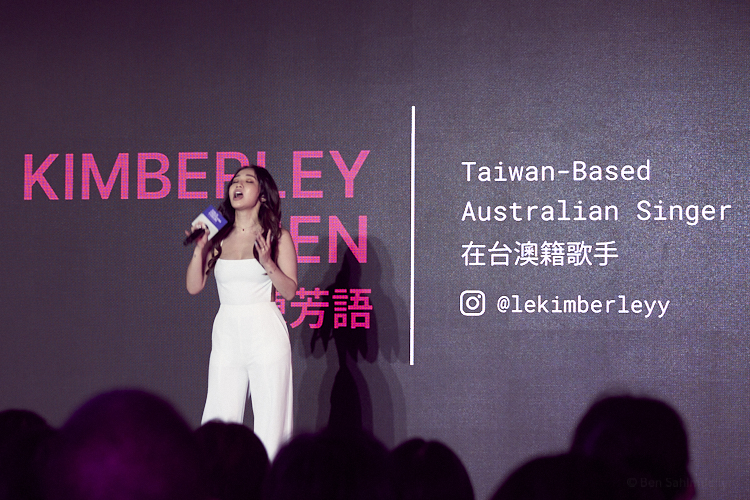
Ideas, so many of them
I overall liked the event but/and it left me with many deep thoughts, three of them I want to sketch here.
Where West meets East
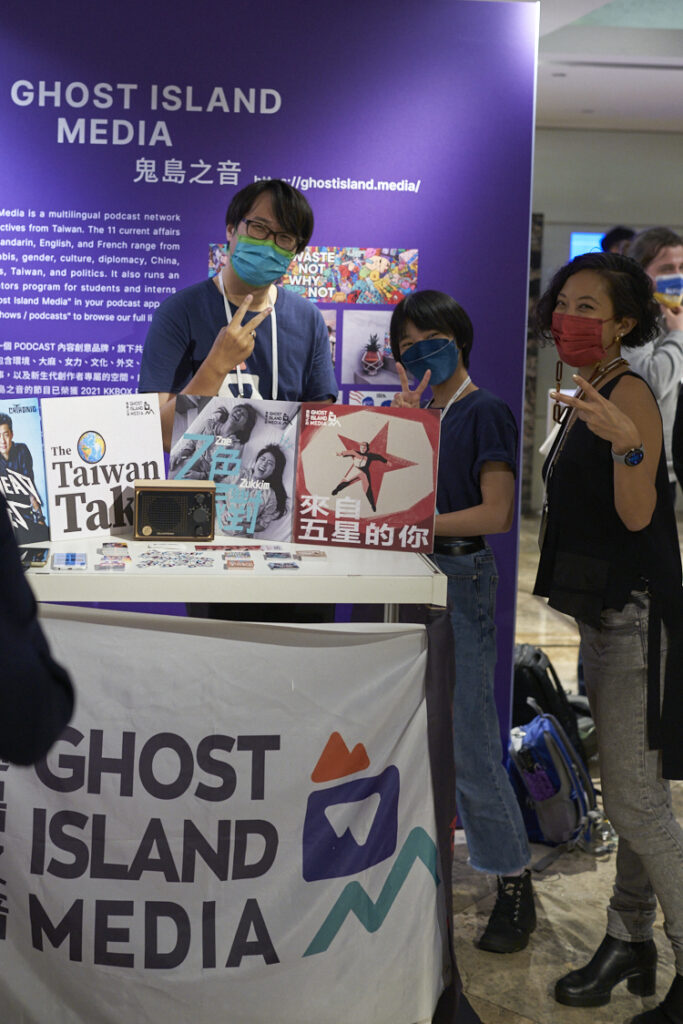
First, if you want to form an opinion or learn something from an event like this, I think it is helpful to think about it’s goal/purpose/meaning/function. (An always fun an important exercise if you are like me way too prone to systems thinking.) As is often the case, events in the broader civil society sphere are much more fuzzy than those in the business realm or science, as civil society (almost by definition?) is not as transactional as business and has less clear goals (science!/publications…) than academia. So what’s The Purpose of OFF? (No worries if your gut answer is “none!”. It’s a Norwegian organization, so no EU funds were spoiled this time. The Twitter funds will likely also trickle out in the future.)
For the activists and speakers, a forum like this plays an important role for distribution of and distinction for their messages, making it easier for them to find partners and grants to keep doing their work. The Human Rights Foundation is also well-respected which rubs off to the speakers, granting them broader trust in… let’s say progressive circles. All this – outreach, funding, and trust – are essential if you want to work effectively as an organizer in civil society, where you are more or less dependent on the money of others. (At least as long as you don’t write a Big Book.)
For the participants, the event itself is a nice way to talk about their ideas and meet new people – “networking” if you want. Usually, activists, (human rights affiliated) journalists, and NGO-people are quite good at networking already, but they are also busy and it’s good to have many people at the same place as it makes it easier to bump into and connect each other. As much of the work of this kind of work depends on relationships and partnerships (and time needs money), this creates actual value.
For the broader audience (random visitors like me, people watching the talks online, etc.), an event like this is mainly entertainment with an inspirational touch. In this it is a bit like TED, but I like that the general message seems to be one of character and courage instead of epiphany and serendipity. As the former require work, the latter luck, this also creates a better take-away for a conference (“do your work” instead of “be glorious and The Universe will certainly find your Unique Gift”). At OFF there were many students and who knows, maybe one of them will found an important organization dealing with Chinese propaganda or have an influential political career and this event was another nudge to doing that?
Finally, a conference like this is a form of happening and mark of recognition for participants who often work hard in badly-paid work (or voluntarily) out of personal conviction. Our age is quite monetized and commercialized, with “entrepreneurs” and “intrapreneurs” as the idealized archetypes of how to be successful in society: hustle, be creative, and thou shalt be rewarded! I don’t mean this in a moralizing way, it’s neither good nor bad, it just makes it really really hard to organize a society around, as entrepreneurship is mainly about reducing complexity (pick a problem, find a solution, and scale it!), whereas society is just oh so complex and it’s not clear that for every problem there is a solution that you can scale in a financially sustainable way. So it’s good that people here and there take the “easy route” by not distracting themselves with monetization and just do what’s necessary. And these people have to eat and pay (rising) rents so… showing a bit of respect and gratitude for their choice is good! And fair! And money would probably also be nice!
The dragon in the room
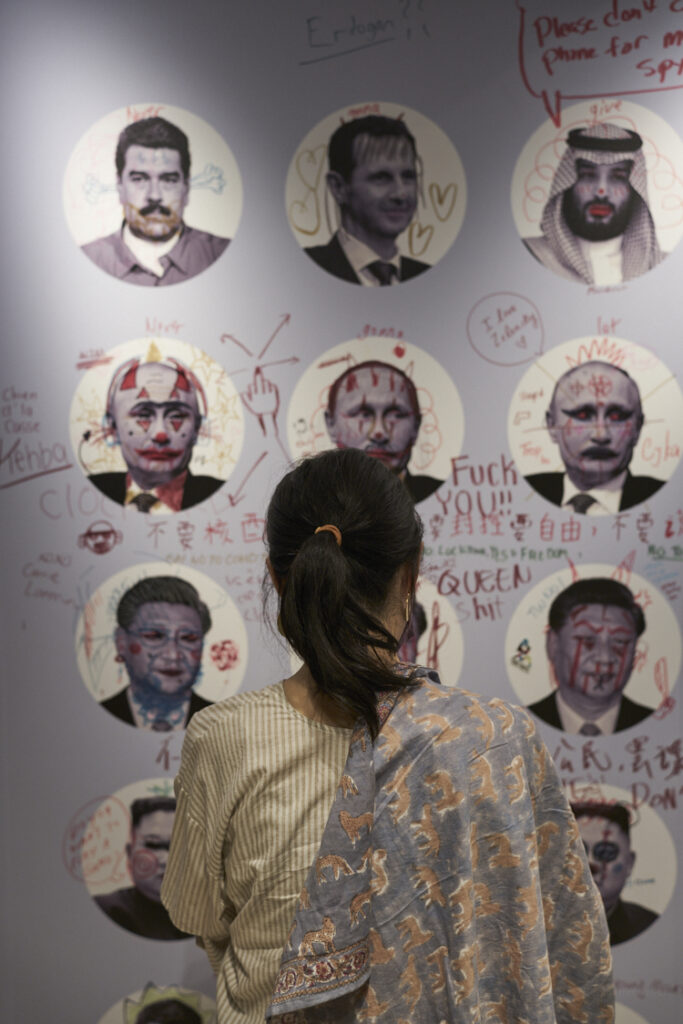
The second big question: What about the Forum being in Taipei? I think it’s great that it is happening here… and oh so much more would be possible! Unfortunately, there was only one Taiwanese speaker (the metal singer-gone politician Freddy Lim) – but he was basically in campaigning-mode, so his talk was among the weakest. (Others are now based in Taiwan as dissidents, but talked about their past actions in e.g., China or Hong Kong.) This is a pity as there are few events in this space here with this international outreach and gravitas and it would have been a good stage to present Taiwanese projects and community leaders. (Also, I would have liked to see Audrey Tang on this stage!) With regards to content, I think more of the talks could have connected to the problems Taiwan’s civil society is facing in view of the tensions with China.
Working in the German civil society during the 2015 European Refugee Crisis, I became a big believer of… let’s keep matters simple and say “societal resilience” to face big nation-wide challenges. You need informal networks, trust, media literacy, entrepreneurial/(good) hacker spirit, local leadership, … You need just a lot of stuff to adapt to a sudden big change in your society. (An important message also made by Oleksandra Matviichuk in a talk about Ukraine.) I don’t think you can fully prepare for an uber-complex catastrophe (like a big sea blockade by an overly powerful aggressive neighbor when you are an island nation), but you can do a lot of stuff that brings you hopefully in a position to deal better with the problems once you face them.
Taiwanese people are well known for their thick skin regarding China’s provocations so it is quite common here to just not talk about a possible attack, but silence is not the only solution if you could just be more Straussian about it and talk about something different but related. I mean… of course people were talking in the hallway, I loved the audacity and playfulness of “doodling on dictators”, there were even images of those same people on the ground to #stepontyranny, but this is not about us-vs-them and always about China. This is about a stronger Taiwanese society, a Taiwanese society that was present in the hallway, but that will not be present in the content that is streamed online. The whole official event was talking too little about Taiwan, too little with Taiwan, speaking too much to Taiwan. And that is sad.
Connected to this, I was also sad that the “Taiwan establishment” seemed not very present. Of course, if you are a professor at NTU or a middle manager at TSMC you have a different job than to go to weird Norwegian conferences, but still… we all have to start somewhere, and even at NTU and TSMC you probably have some people who are eager to think more holistically about Taiwan’s challenges. Why were they not there? (It is hard to make a strong case for specific, immediate effects of such an exchange, yet I do believe in serendipity. The main point here is this: the amount of white-sneaker-MBA-types at an event like this says something about the culture in their organizations. That they are missing is thus a somewhat depressing but not totally surprising peak into a business culture that is well known for strong hierarchies and big power distances but which might one day need not only engineering prowess but society-level out-of-the-box thinking.)
There is such a thing as society
The biggest fun I had was to analyze the meta-narrative of the conference, the similarities between the speakers in the way they talked about civil society, the enemies of civil society, and their hopes and images of it. This post is too long already so I will open that can of worms another time, but to leave you a small nugget: Considering how the main conflict in western societies in the last decade has been around how “elites”/”the establishment” is destroying the country, what do you think a Human Rights-based vision and counter-narrative could be about that?
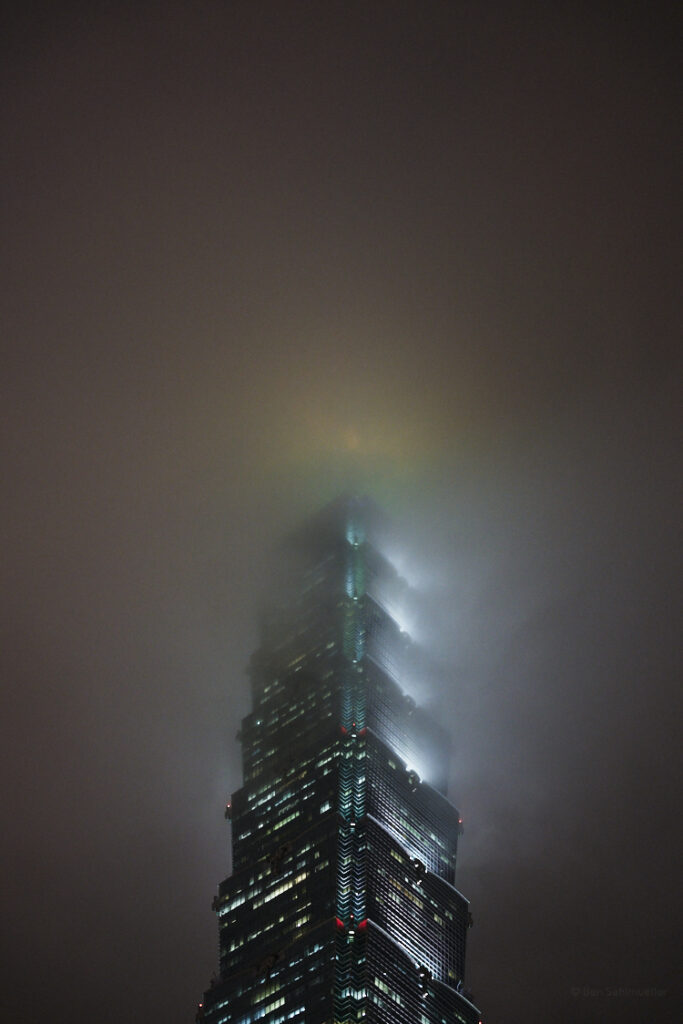
Last but not least: dictators, heroes, heroines, and a bit of hope
The essay is over here – meta as it was and usually is. Thank you for your time and attention!
And! I really think the amazing women and men talking (there were no trans people among the speakers) deserve every respect and outreach they can get. So, here you go, a short summary of every talk!
What connected all speakers were their personal experiences of authoritarianism and their courageous fight against dictators and their police. They all often put their fellow human beings before themselves, risking their possession, freedom, health, or even life for others. I think in our nihilistic, cynical times, where any selfless or principled action is quickly understood as a stupid invitation to be taken advantage of – and often is taken advantage of – (just think nurses, teachers, etc.), such a stance deserves gratitude and admiration.
The video of the talks is accessible online, but as three hours is quite a lot of time, let me list them, briefly – out of respect and admiration. I added all people I was able to find to a list on Twitter that you can easily follow.
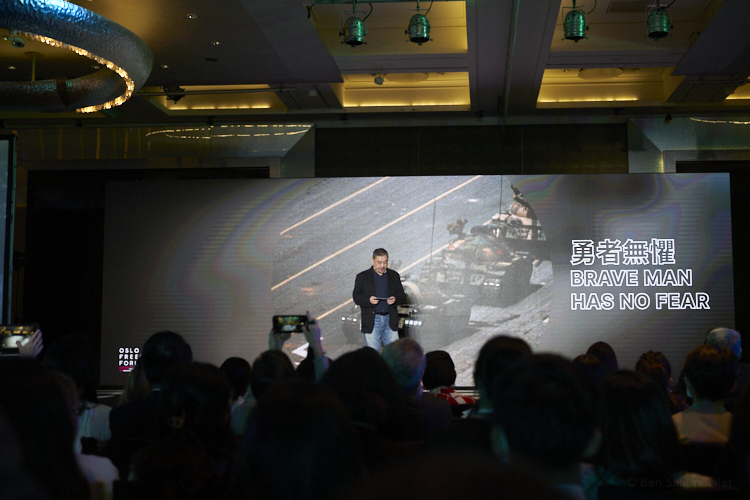
After a warm welcome by Céline Assaf-Boustani, the President of HRF, and Jaushieh Joseph Wu, the Foreign Minister of Taiwan, Wu’er Kaixi (Twitter, picture) started the talks. (All name-links go to Wikipedia).
The former No 2 on China’s list of most wanted student leaders was one of the most outspoken leaders during the protests at Tiananmen Square in April 1989. Building on his experiences fighting the party in China, he criticized the appeasement strategy of several western nations building on the illusion of democratization through economic engagement, German’s “Wandel durch Handel”.
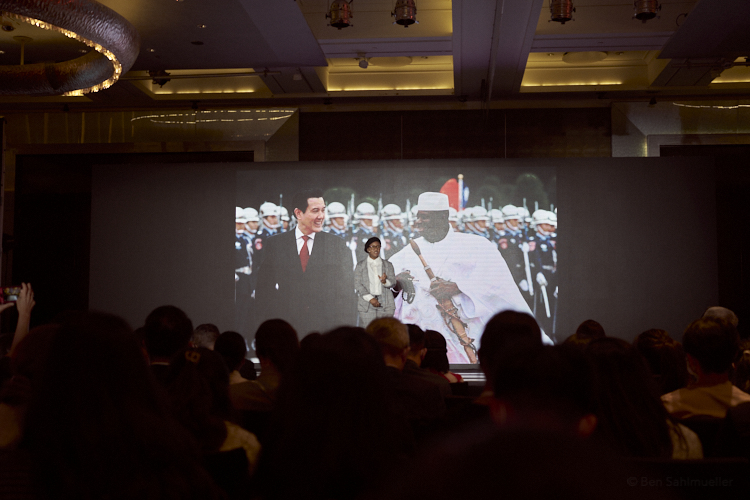
Next, the recent nobel laureate Oleksandra Matviichuk (Twitter) was called in. Matviichuk highlights the courage, endurance, and strength of Ukrainian civil society to support the defense of their home country. One of her current initiatives aims to document the various war crimes committed by the Russian military.
Toufah Jallow (Instagram, picture) inspired the #MeeToo movement in The Gambia when she accused the former dictator, Yahya Jammeh, of raping her. In her touching talk, she reminds about the importance to fight for human rights for women, highlighting especially the challenges for women in dictatorships. She appeals to Taiwan and other countries as well as tech companies active in those countries to put women’s human rights more at the center of their foreign policy and services, asking once more, “where is Peng Shuai”. (The general message is more important than ever given what is happening on Twitter, an important but even beforehand difficult platform for women activists in those countries.)
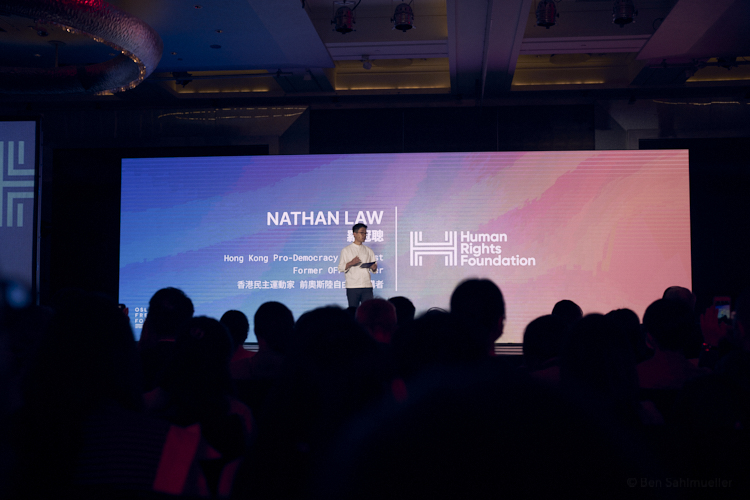
Thanathorn Juangroongruangkit (Twitter) was a Thai business man who founded the democratic Freedom Forward Party in Thailand. It was dissolved by the regime after becoming the strongest party in 2019. In his talk he reminded us about the instability in Thailand with several coup d’etats and constitution changes in the last years.
Nathan Law (Twitter, picture) was one of the student leaders during Hong Kong’s Umbrella Movement protests in 2014, after which he co-founded the Demosistō party fighting for the self-determination in Hong Kong. He became the youngest lawmaker in the Legislative Council of Hong Kong, after which he was jailed for several months. Building on his experiences, he asks “if the arc of the moral universe is indeed what Dr. King said, that it bends towards justice, then we cannot help but ask, how long does it take. How many of our lives are lost?” After the conference, he was very outspoken against Scholz’ trip to China, arguing the EU should reduce reliance on China, build stronger alliance with like-minded allies in the free world, stronger ties with democratic civil societies, and sanction more Chinese officials and Hong Kong officials who are responsible for human rights violations.
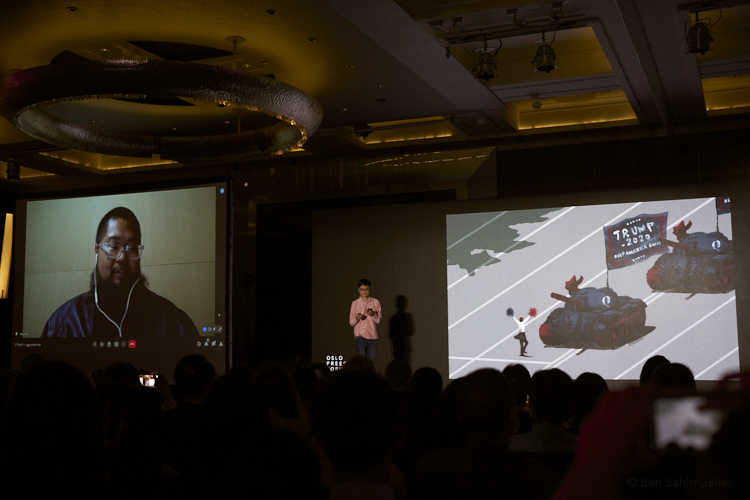
Freddy Lim (Twitter) is a household name in Taiwan. The ex-metal singer now became a well respected politician. In his talk, he stresses the importance of culture and entertainment to build bridges between Taiwan and the rest of the world. Just as he opened the talk with more bravura and bravado than any other speaker (probably thanks to being a musician?) he also was the heaviest user of buzzwords and platitudes (maybe because he is a politician?). But I am not blaming him, the OFF was taking place in the time of campaigning for the local elections, and in Taipei Freddy Lim was a prominent part of that.
Badiucao (Twitter, Instagram, picture) is a Chinese artists who – similar to Ai Weiwei – uses his art to expose the CCP’s human rights violations through his art pieces. For this, he often uses well-known symbols like “tank man” or, more recently, Da bai (大白), the hazmat suits that now stand in for China’s Zero Covid policy.
Wai Hnin Pwint Thon (Twitter) talks about the suppression, killings, and torturing by the junta in Burma, also targeting her family. She reminds us that the junta nonetheless doesn’t control the country and that there is still strong but often ignored resistance against the junta. She asks western companies to finally finally please why-do-we-still-have-to-talk-about-this end providing weapons to the military regime.
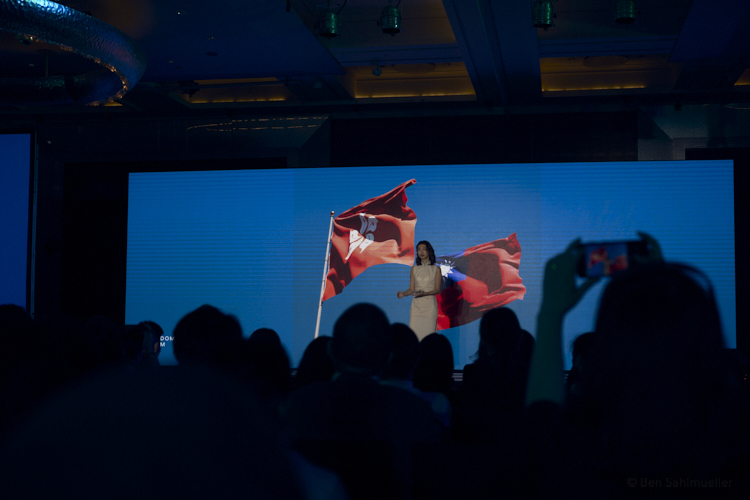
Areej al-Sadhan (Twitter) describes the fate of her family, imprisoned by the Saudi Arabian regime for voicing their opinion on Twitter. She highlights the regime’s use of sports, entertainment, and celebrities to distract from its human rights violations. (An important message during the weeks before the FIFA World Cup.)
Ching Ching Kwong (Twitter, picture) fled Hong Kong to Germany after the National Security Law was enacted. She describes her difficulty of making Germany her home, due to cultural differences just as daily racism. Kwong is one of the few speakers directly addressing the Taiwanese audience, encouraging them to take agency, even when Taiwanese and Hong Kongers are denied agency by the great powers.
In short interludes, HRF also presented several other projects they highlight on their official homepage. For example, HRF supports the work of the Chinese dissident artist Weiming Chen’s, whose art in Liberty Sculpture Park in California has been destroyed. The North Korean defector Seongmin Lee presented HRF’s initiative “Flash Drives for Freedom”, aiming to smuggle USB sticks with videos, photos, music and other information about the world into North Korea in order to bust the regime’s propaganda. Also, HRF’s Michelle Gulino (Director of Legal & Programs) presents the initiative Celebrities & Dictators, raising awareness about how authoritarians use western celebrities to whitewash their regime.
All in all, a lot of impressive human beings whose service for a better world we can all be thankful for!
